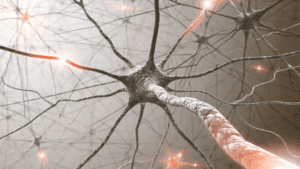The power of positive thinking is more than just a motivational mantra; it is a scientifically-backed mechanism that can rewire the brain, improve mental well-being, and enhance overall life satisfaction. Neuroscience reveals that the way we think directly influences brain chemistry, neural connectivity, and emotional regulation. By merging life coaching with neuroscience, we can explore the profound impact of positive thinking on well-being, resilience, and success.
The Neuroscience Behind Positive Thinking in Life Coaching
The brain is a dynamic organ that continuously adapts to our thoughts, experiences, and emotions. Every thought we have strengthens specific neural pathways, shaping our perception of the world. When we engage in positive thinking, we activate and reinforce neural networks associated with optimism, problem-solving, and emotional resilience.
How Positive Thinking Affects the Brain
- Neurotransmitter Release: Positive thoughts stimulate the release of dopamine, often referred to as the “feel-good” neurotransmitter, and serotonin, which helps regulate mood and emotional stability.
- Stress Reduction: Optimistic thinking reduces the production of cortisol, the primary stress hormone, leading to lower anxiety and improved overall health.
- Enhanced Cognitive Function: A positive mindset engages the prefrontal cortex, which is responsible for rational thinking, decision-making, and problem-solving.
The Role of Neural Plasticity

Neuroplasticity refers to the brain’s ability to reorganize itself by forming new neural connections. Studies show that consistent positive thinking strengthens these pathways, making optimism a default response over time. Just as negative thinking can reinforce pessimistic brain patterns, deliberate positive thinking can restructure neural networks to favor a more optimistic outlook.
Recognizing the Neural Impact of Negative vs. Positive Thoughts
Brain Scans and Imaging
Modern functional magnetic resonance imaging (fMRI) and EEG scans have shown distinct patterns in brain activity when individuals engage in positive versus negative thinking. Optimistic thoughts activate the prefrontal cortex, associated with rational decision-making and emotional regulation, whereas negative thoughts stimulate the amygdala, the brain’s fear center, which is linked to stress and anxiety.
Neurochemical Release
- Positive Thinking: Boosts dopamine and serotonin, promoting happiness, motivation, and a sense of reward.
- Negative Thinking: Triggers cortisol release, increasing stress, anxiety, and depressive symptoms.
Long-Term Brain Changes
Repeated negative thoughts reinforce neural pathways associated with stress and fear, making it easier for the brain to default to negative emotions. Conversely, regularly practicing positive thinking strengthens pathways linked to resilience, confidence, and overall well-being.
Life Coaching Strategies to Cultivate Positive Thinking with a Neuroscience Approach
Life coaching rooted in neuroscience offers practical techniques to train the brain toward optimism and resilience. By understanding how thoughts shape neural activity, individuals can actively rewire their brains to default to positivity instead of negativity.
1. Mindful Awareness
Being aware of thoughts is the first step in reshaping them. Neuroscience-based coaching teaches individuals to:
- Observe their thoughts without judgment.
- Identify negative patterns.
- Consciously shift their focus to positive thoughts.
2. Affirmations and Visualization
Studies show that repeating positive affirmations can rewire the brain by strengthening neural connections related to self-belief. Visualization—mentally imagining positive outcomes—also activates the same neural circuits as experiencing success in reality.
Example: Instead of thinking, “I’m not good enough,” replace it with “I am capable, and I continue to grow.” Over time, the brain begins to adopt this belief.
3. Cognitive Reframing
Cognitive reframing is a technique that challenges negative thought patterns and replaces them with constructive alternatives. Since the brain learns through repetition, this strategy gradually alters underlying neural structures, making optimism a habit.
Example of Reframing:
- Negative Thought: “I always fail at new things.”
- Reframed Thought: “Every challenge is a learning opportunity, and I improve with practice.”
This shift activates the prefrontal cortex, reinforcing problem-solving abilities rather than stress responses.
4. Gratitude Practice
Neuroscientific research shows that gratitude physically changes the brain by strengthening connections in the prefrontal cortex. Practicing gratitude:
- Boosts dopamine and serotonin levels.
- Reduces activation in the amygdala (the brain’s fear center).
- Increases overall life satisfaction.
Practical Tip: Keep a gratitude journal and write down three positive things daily.
5. Educate and Empower
Understanding how positive thinking changes the brain makes individuals more proactive in cultivating a positive mindset. Life coaching incorporates neuroscience education to:
- Empower individuals to take control of their thought processes.
- Showcase the scientific backing of positivity.
- Encourage long-term habit formation.
The Long-Term Benefits of Positive Thinking on Mental and Physical Health

A consistent practice of positive thinking has far-reaching effects, not just on mental well-being but also on physical health and overall life success.
1. Improved Mental Health
Positive thinking is linked to:
- Lower rates of depression and anxiety.
- Higher emotional resilience in stressful situations.
- Greater motivation and goal achievement.
2. Enhanced Physical Health
Research from institutions like Harvard Medical School suggests that optimistic individuals:
- Have lower blood pressure.
- Experience a reduced risk of cardiovascular disease.
- Live longer, healthier lives.
3. Strengthened Relationships
A positive mindset fosters:
- Better communication.
- Higher levels of empathy and understanding.
- More fulfilling personal and professional relationships.
Conclusion: Harnessing the Power of Positive Thinking
The intersection of neuroscience and life coaching offers a scientific blueprint for cultivating lasting positivity. By recognizing the neural basis of thoughts and actively working toward a positive mindset, individuals can retrain their brains, enhance emotional well-being, and unlock their full potential.
When guided by neuroscience-based coaching, positive thinking is not just wishful thinking—it becomes a powerful tool for transformation. By intentionally shaping our thoughts, we influence brain chemistry, neural connectivity, and long-term happiness. The brain is a powerful ally, and with the right strategies, we can train it to work in our favor, leading to greater success, resilience, and well-being.
PositiveThinking #Neuroscience #BrainTraining #Neuroplasticity #LifeCoaching #MindsetShift #PositivePsychology #MentalResilience #Dopamine #StressReduction






